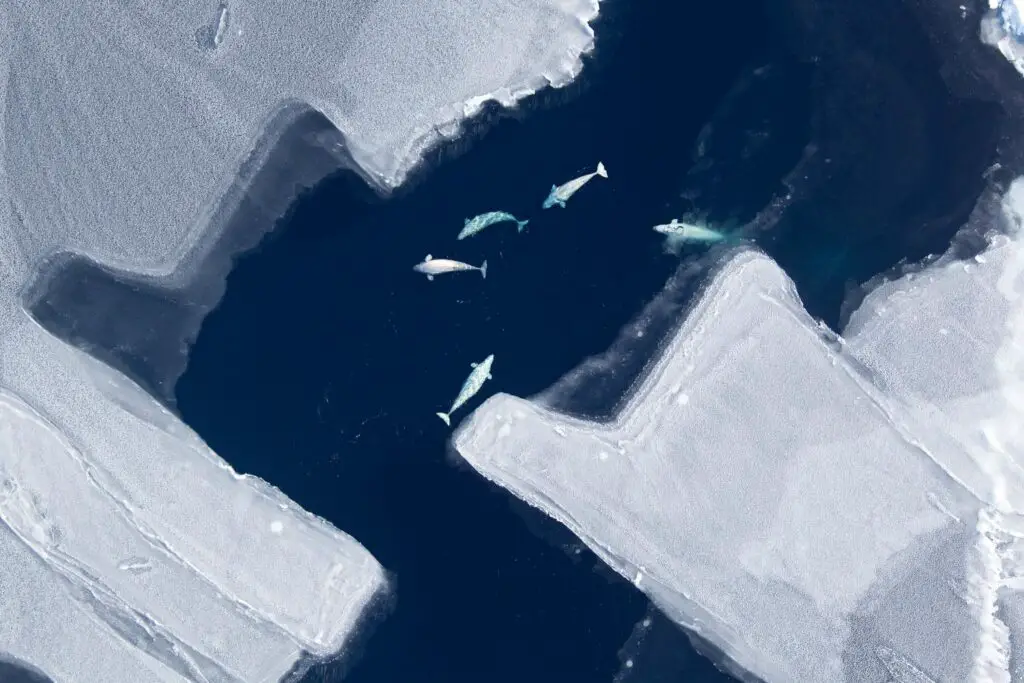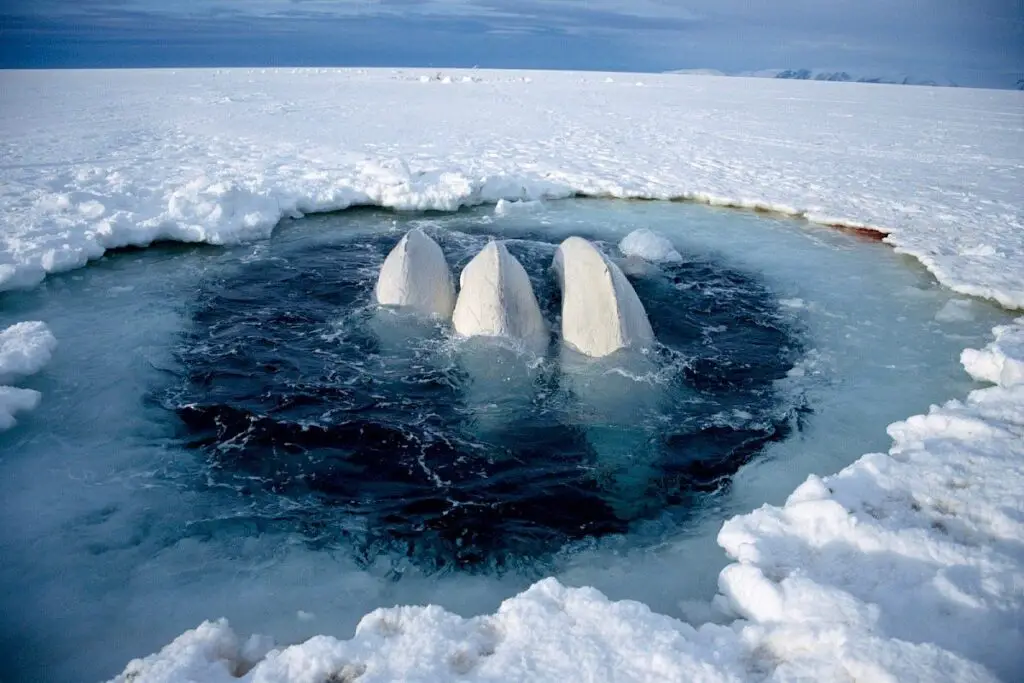In December 1984, a remarkable and dramatic rescue operation unfolded in the icy waters of the Chukchi Sea near Russia. A group of 3,000 beluga whales found themselves trapped by thick ice, their survival hanging in the balance. What followed was a heroic and unexpected rescue effort involving icebreakers, classical music, and the combined efforts of dedicated individuals. Here’s a closer look at the incredible story behind Operation Beluga.

The Crisis Unfolds
In late 1984, the Chukchi Sea was enveloped by a severe ice formation, creating a perilous situation for a large pod of beluga whales. The ice, some 10 feet thick in areas, confined the whales to small patches of open water, making it difficult for them to breathe and find food. The situation was dire, as the whales were at risk of suffocating or dying from exposure.
**1. The Scale of the Problem:
The trapped whales were confined to small ponds of open water surrounded by impenetrable ice. With such limited space and no immediate access to the wider ocean, the survival of the whales was under serious threat. The urgency of the situation called for an extraordinary response.
The Rescue Operation
**1. The Icebreaker Admiral Makarov:
To address the crisis, the Soviet government dispatched the icebreaker Admiral Makarov, a powerful vessel equipped with a reinforced hull designed to break through thick ice. The mission was to create a path through the ice, allowing the whales to escape to the open ocean. However, the initial attempts to guide the whales to safety proved challenging.
**2. Classical Music as a Key:
The breakthrough in the rescue effort came when the crew of the Admiral Makarov began playing classical music, including compositions by Tchaikovsky, over the ship’s speakers. Surprisingly, the beluga whales responded positively to the music. Their behavior changed, and they began to follow the icebreaker through the narrow channels of open water, demonstrating the calming and guiding effect of the classical tunes.

The Success of Operation Beluga
**1. Journey to Freedom:
Over the course of several days, the Admiral Makarov navigated through the ice, creating a passageway for the whales. Thanks to the combination of the icebreaker’s efforts and the unexpected influence of classical music, approximately 2,000 beluga whales were successfully guided to open waters after a journey of nearly 100 miles.
**2. The Legacy of the Rescue:
Operation Beluga was hailed as a remarkable success, showcasing the power of human ingenuity and compassion in the face of environmental challenges. The operation not only saved thousands of whales but also highlighted the unexpected ways in which art and technology can come together to achieve a common goal.
Conclusion
The story of Operation Beluga is a testament to the extraordinary lengths to which humans can go to protect and preserve wildlife. The combination of advanced icebreaking technology and the soothing influence of classical music played a crucial role in the successful rescue of these magnificent creatures.
Operation Beluga remains a poignant reminder of our ability to respond to crises with creativity and dedication, ensuring the survival of some of the ocean’s most enchanting inhabitants.

